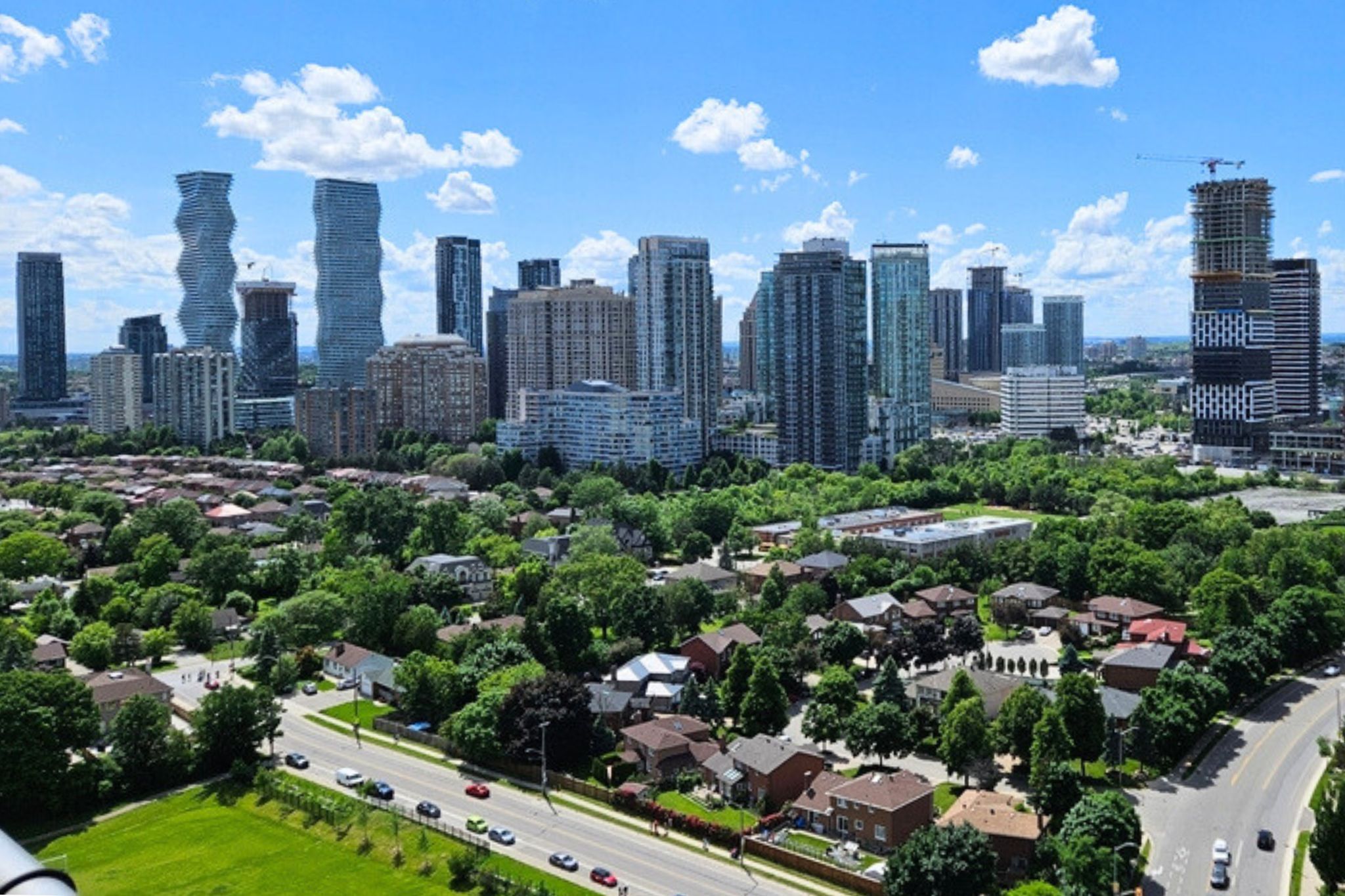Top Stories
Canadians Face High Housing Costs in Happiest Cities

A recent analysis has revealed that the happiest cities in Canada come with a significant financial burden. According to a survey conducted by Leger, which assessed happiness levels across the country, individuals residing in these cities face steep housing prices. Released in July, the 2025 Happy Cities and Provinces Survey provides insights into the well-being of Canadians, reporting an average happiness score of 68.7 out of 100.
While this average reflects a general sense of contentment, the report highlights more troubling trends. Approximately 28 percent of Canadians indicated that they feel less happy than the previous year, while nearly half reported no change. Only 23 percent of respondents noted an increase in their happiness levels. The survey ranked happiness in major Canadian cities, with Mississauga, Ontario, leading the way with a score of 70.3. Following Mississauga were Montreal at 69.4 and Hamilton, Ontario, at 67.5.
Link Between Happiness and Housing Prices
In a deeper examination of the findings, real estate company Zoocasa analyzed how happiness correlates with housing costs. By comparing Leger’s happiness data with average home prices from the Canadian Real Estate Association and the Toronto Regional Real Estate Board, Zoocasa calculated a “price per happiness point.” The results indicate that residing in the happiest cities requires substantial financial investment. In Mississauga, the average home price is $969,501, translating to roughly $13,788 for each happiness point.
This figure is nearly double that of Montreal, where the price per happiness point is $8,343. Zoocasa spokesperson Angela Serednicki remarked on the stark contrast in affordability among the largest Canadian cities. “The eight other largest cities by population fall below it, even with their abundance of amenities, job opportunities, and urban conveniences,” she stated.
The analysis revealed that the price per happiness point varies significantly across Canada, ranging from the lowest at $5,790 in Winnipeg to the highest at $17,220 in Vancouver. This suggests that cities in Western Canada provide better value for happiness. Edmonton ($6,289 per point), Calgary ($8,425), and Winnipeg ($5,790) rank among the most affordable, allowing residents to enjoy a sense of well-being without the financial strain present in pricier markets.
Comparative Analysis of Major Cities
Both Montreal and Calgary manage to strike a balance between happiness and housing affordability. With around $8,000 per happiness point, these cities offer a livability that does not compromise financial stability. “These markets show that livability and affordability can coexist, offering residents a sense of well-being without the financial strain found in Canada’s most expensive metropolitan areas,” explained the Zoocasa analysis.
Conversely, Canadians living in Vancouver and Toronto experience some of the lowest happiness levels while grappling with the highest housing costs. In both cities, home prices exceed $1 million, resulting in residents paying more than $16,000 for each happiness point. Serednicki emphasized that despite the vibrant job markets and cultural opportunities these cities offer, affordability issues continue to impact overall life satisfaction.
These findings raise important questions about the relationship between happiness and housing costs in Canada. As residents in the happiest cities navigate the challenges of high real estate prices, the data suggests a complex interplay between emotional well-being and financial realities. The analysis underscores the need for ongoing discussions about housing affordability and its impact on quality of life in urban settings across the country.
-

 Lifestyle2 months ago
Lifestyle2 months agoWinnipeg Celebrates Culinary Creativity During Le Burger Week 2025
-

 Education2 months ago
Education2 months agoBrandon University’s Failed $5 Million Project Sparks Oversight Review
-

 Science3 months ago
Science3 months agoMicrosoft Confirms U.S. Law Overrules Canadian Data Sovereignty
-

 Health3 months ago
Health3 months agoMontreal’s Groupe Marcelle Leads Canadian Cosmetic Industry Growth
-

 Science3 months ago
Science3 months agoTech Innovator Amandipp Singh Transforms Hiring for Disabled
-

 Education2 months ago
Education2 months agoRed River College Launches New Programs to Address Industry Needs
-

 Technology3 months ago
Technology3 months agoDragon Ball: Sparking! Zero Launching on Switch and Switch 2 This November
-

 Technology4 weeks ago
Technology4 weeks agoDiscord Faces Serious Security Breach Affecting Millions
-

 Technology3 months ago
Technology3 months agoGoogle Pixel 10 Pro Fold Specs Unveiled Ahead of Launch
-

 Science3 months ago
Science3 months agoChina’s Wukong Spacesuit Sets New Standard for AI in Space
-

 Education2 months ago
Education2 months agoAlberta Teachers’ Strike: Potential Impacts on Students and Families
-

 Business2 months ago
Business2 months agoRocket Lab Reports Strong Q2 2025 Revenue Growth and Future Plans
-

 Technology3 months ago
Technology3 months agoWorld of Warcraft Players Buzz Over 19-Quest Bee Challenge
-

 Business2 months ago
Business2 months agoDawson City Residents Rally Around Buy Canadian Movement
-

 Technology4 weeks ago
Technology4 weeks agoHuawei MatePad 12X Redefines Tablet Experience for Professionals
-

 Business3 months ago
Business3 months agoNew Estimates Reveal ChatGPT-5 Energy Use Could Soar
-

 Technology3 months ago
Technology3 months agoFuture Entertainment Launches DDoD with Gameplay Trailer Showcase
-

 Science3 months ago
Science3 months agoXi Labs Innovates with New AI Operating System Set for 2025 Launch
-

 Technology3 months ago
Technology3 months agoInnovative 140W GaN Travel Adapter Combines Power and Convenience
-

 Business2 months ago
Business2 months agoBNA Brewing to Open New Bowling Alley in Downtown Penticton
-

 Technology3 months ago
Technology3 months agoGlobal Launch of Ragnarok M: Classic Set for September 3, 2025
-

 Education2 months ago
Education2 months agoNew SĆIȺNEW̱ SṮEȽIṮḴEȽ Elementary Opens in Langford for 2025/2026 Year
-

 Technology3 months ago
Technology3 months agoNew IDR01 Smart Ring Offers Advanced Sports Tracking for $169
-

 Technology3 months ago
Technology3 months agoArsanesia Unveils Smith’s Chronicles with Steam Page and Trailer









